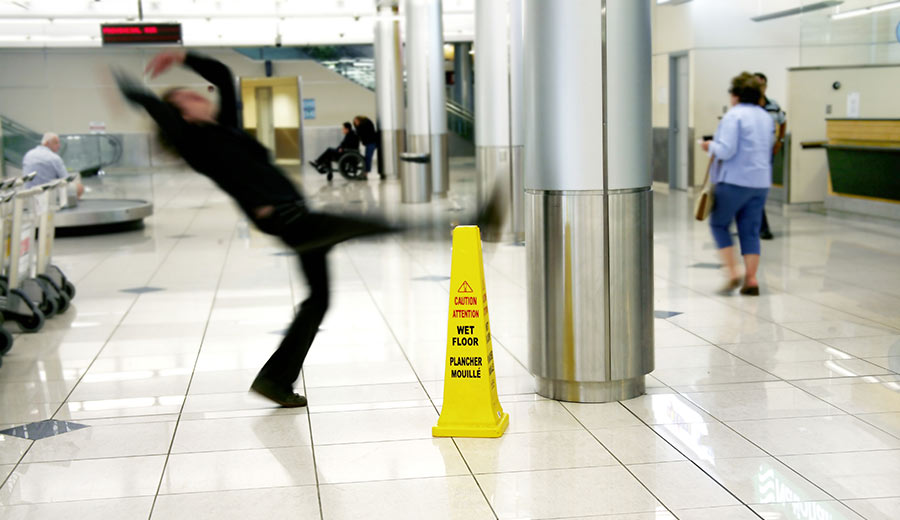Slip and Fall Investigations
At Quest Associates, we are well versed in investigating and obtaining statements on all aspects of slip and fall accidents, whether for plaintiff or defendant.
Everyone has their clumsy moments, but sometimes a serious slip and fall accident can be tied directly to another person’s negligence. These accidents can happen on business, public, residential, or other types of property. Often a wet floor, icy sidewalk, spillage in a supermarket isle, or some other sort of hazardous surface condition may cause the slip and fall.
According to the United States Department of Labor, slips, trips, and falls constitute the majority of general industry accidents. They are responsible for 15% of all accidental deaths, and are second only to motor vehicles as the primary cause of accidental fatalities.
Slip and fall accidents are commonly associated with incidents in stores, when someone slips and falls on a freshly mopped floor. The truth is, there are many different types of slip and fall accidents and they can occur in a number of places. Victims are frequently injured by:
- Ice or snow-covered walkways that have not been properly cleared
- Wet, slippery floors or spills that have not been cleaned up
- Cracked sidewalks or pavement
- Broken stairs or handrails
- Old or torn carpeting
- Uneven floors
- Workplace, especially construction sites
- Inadequate lighting in public areas
Any property owner who fails to maintain his store, parking lot, or rental property could face a premises liability lawsuit if their actions – or inactions –are determined to be negligent. Even if a property owner did not know about the hazard, he can still be held responsible if it is determined that he should have known. Here at Quest, we are adept at getting that crucial information to solidify the case for you and your attorney.
In order to settle a slip and fall suit, the attorney must have witnesses, photographs, and industry standards. The witness can be an engineer, the photos can be after the fact (although they must depict the location), and the hazard must be identified by a standard that requires it to be identified or eliminated.
There is more to slip-and-fall cases than just whether or not the substance has been on the floor for an unreasonable length of time. The usual test for reasonableness, in a grocery store or a public place for example, is 15 minutes.
Prior notice is a critical element that can make your case. For example, if, over the course of a year, several folks fell in a hole outside a store and management was notified of the condition but did nothing, the property owner may be found negligent, and liable for damages and resulting injuries. Quest Associates examines accident records and obtains witness accounts to assist in making your case.
Quest can be instrumental in defending these kinds of cases by securing evidence early in the litigation process. We are astute in investigating the issue of comparative fault, commonly referred to as contributory negligence, where the victim was careless by not avoiding the danger, and shares some or all of the responsibility.

